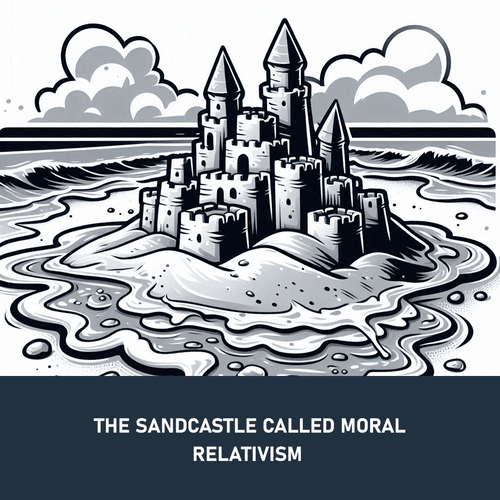How Jehovah’s Witnesses’ Key Teachings Differ from Biblical Doctrine
Though they call themselves a Christian denomination, Jehovah’s Witnesses (JWs) hold several beliefs that diverge from traditional biblical interpretations and mainstream Christian doctrines. Understanding these differences is crucial for those seeking to evaluate the JW faith. Consider with us how Jehovah’s Witnesses’ key teachings differ from biblical doctrine:
- Salvation by Works and Adherence to the Watchtower Society: Contrary to the biblical doctrine of salvation by grace through faith in Jesus Christ alone, JWs emphasize the necessity of works, including door-to-door evangelism and adherence to the teachings of the Watchtower Bible and Tract Society, for salvation.
- Denial of Christ’s Divinity and His Bodily Resurrection: While Christians affirm the deity of Jesus Christ, JWs believe He is a lesser divine being and not fully God. They reject the biblical teaching that Jesus is the incarnation of God and the second person of the Trinity. Instead, they teach Jesus is God’s first-born son, that
JWs also deny the bodily resurrection of Jesus Christ as described in the Gospels. Instead, they teach He was resurrected as a spirit creature.
Here’s more on how Jehovah’s Witnesses’ key teachings differ from biblical doctrine:
- Rejection of the Trinity: Unlike most Christian churches, JWs reject the doctrine of the Holy Trinity, denying the co-equality and co-eternality of God the Father, the Son (Jesus Christ), and the Holy Spirit. They view Jesus as a created being, not co-equal or co-eternal with God the Father. They deny personhood to the Holy Spirit and refer to Him as ‘it’ rather than ‘Him’, and as an impersonal force of God.
- Limited Atonement: While Christians hold that Christ’s atonement is universal and available to all who believe, JWs teach that only a select group of 144,000 “anointed ones” will receive heavenly salvation.
- Rejection of Hell as Eternal Punishment: JWs reject the biblical doctrine of eternal conscious punishment in hell for unbelievers. Instead, they hold to the belief of annihilationism, which teaches the wicked will simply cease to exist.
- Absolute Authority of the Watchtower Society: JWs are required to submit to the authority of the Watchtower Bible and Tract Society, which they believe is the sole channel through which God communicates with humanity.
- Failed Predictions of the End Times: Throughout their history, JWs have made numerous failed predictions regarding the timing of the end of the world and the Second Coming of Christ, undermining their credibility as interpreters of biblical prophecy.
- Prohibition of Blood Transfusions: Based on their interpretation of certain biblical passages, JWs refuse to accept blood transfusions, even in life-threatening situations, posing significant health risks.
- Discouragement of Higher Education: The JW organization actively discourages its members from pursuing higher education, viewing it as a distraction from their primary mission of evangelism and spreading JW teachings.
These key doctrinal differences highlight the significant divergences between JW teachings and widely accepted biblical interpretations held by the majority of Christian denominations.
Related Reads
Editor's Pick

Self-Authentication: Why Scripture Doesn’t Need External Validation
"How can the Bible prove itself? Isn't that circular reasoning?" This objection echoes through university classrooms, coffee shop discussions, and [...]

Do Christians Need Holy Shrines? Why the Reformed Answer Is No
Walk into a medieval cathedral and you'll encounter ornate shrines, gilded reliquaries, and designated "holy places" where pilgrims gather to [...]

I Want To Believe, But Can’t: What Do I Do?
"I want to believe in God. I really do. But I just can't seem to make it happen. I've tried [...]

BC 1446 or 1250: When Did the Exodus Really Happen?
WHY REFORMED SCHOLARS SUPPORT THE EARLY DATE Many a critic makes the claim: “Archaeology has disproven the biblical account [...]

Does God Know the Future? All of It, Perfectly?
Think about this: our prayers tell on us. Every time we ask God for something, we’re confessing—often without realising it—what [...]

Can Christian Couples Choose Permanent Birth Control?
Consider Sarah, whose fourth pregnancy nearly killed her due to severe pre-eclampsia, leaving her hospitalised for months. Or David and [...]

Bone of My Bones: Why Eve Was Created From Adam’s Body
"This at last is bone of my bones and flesh of my flesh!" Adam's joyful exclamation upon first seeing Eve [...]

Is Calvinism Fatalism in Christian Disguise? Think Again
We hear the taunt every now and then: "Calvinism is just fatalism dressed up in Christian jargon." Critics argue Reformed [...]

Can Churches Conduct Same-Sex Weddings?
In an era of rapid cultural change, churches across America face mounting pressure to redefine their understanding of marriage. As [...]

Gender Reassignment: Can Christian Doctors Perform These Surgeries?
In the quiet of a clinic, a Christian physician faces a challenging ethical question. A patient sits across the desk, [...]
SUPPORT US:
Feel the Holy Spirit's gentle nudge to partner with us?
Donate Online:
Account Name: TRUTHS TO DIE FOR FOUNDATION
Account Number: 10243565459
Bank IFSC: IDFB0043391
Bank Name: IDFC FIRST BANK






